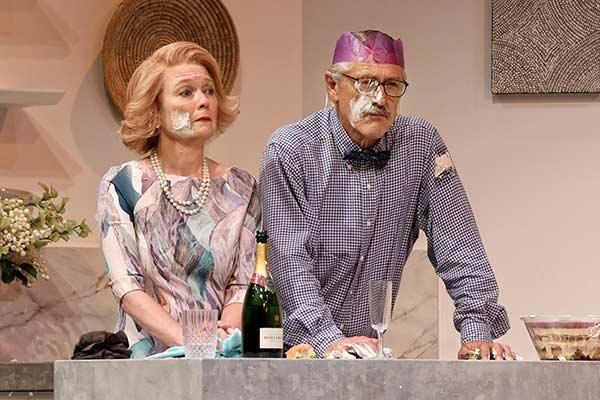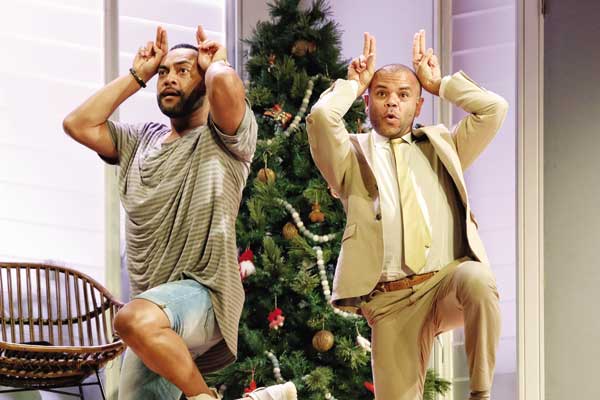On the surface, 'Black Is The New White' is a classic tale of lovers from different tribes.
Charlotte Gibson and Francis Smith are young and in love, but their fathers are old foes from opposite sides of parliament. The Gibson family is a picture of affluence: Ray is a retired politician who revels in the success of his two daughters Charlotte (a lawyer coming off a recent win in a high-profile case) and Rose (a fashion designer who’s just opened a hilariously over-the-top shopping space in LA). They also happen to be Aboriginal.
Many stage depictions of Aboriginal people feature troubled pasts and grim realities but Nakkiah Lui has deliberately avoided these tropes. In the process, she’s created a modern classic that tackles important issues of race, class and identity, and it also happens to be one of the most fun Australian works of recent years.
A Christmas gathering when Francis and his family meet the Gibsons for the first time provides fertile ground for both pathos and humour. The four couples are introduced sequentially as they arrive at the Gibson’s holiday house, and the result is a steady build over the play’s first half. Each of the eight characters is a caricature in their own way (the narrator is surplus to requirements for the most part). Some know they’re lost or dissatisfied, while others have yet to discover it but the solution for all of them is the same: Community. In this case, that takes the form of a hilariously mismatched group that would make the producers of 'Married At First Sight' proud.

Image © Prudence Upton
Each of the Gibsons interacts with their Aboriginality in a different way, most notably Charlotte, who struggles with class guilt and worries that her identity as an affluent middle-class Australian eclipses that aspect of her identity. The Smiths, for their part, also examine what it means to them and Lui gives the characters space to explore these issues without attempting to draw broad conclusions. Instead, she asks questions and encourages the audience to do the same. It’s an easy lead to follow, when we’re not being distracted by Francis’ horrendously awkward jokes or the ensemble’s hilarious physical comedy.
The cast are comfortable in their roles and inhabit them perfectly. There’s a playfulness evident in touches like a flippant 'ok, boomer', and Tony Briggs as the egotistical but playful Ray and Melodie Reynolds-Diarra as his long-suffering but brilliant wife Joan in particular are a delight to watch.
'Black Is The New White' is fun, thoughtful, and incisive, but to describe it as effortlessly funny would be a disservice to Lui. Despite its lightness it's a nimble work of great depth and one imagines that in the near future it could be adapted into a movie that would become a deserving Christmas favourite.
But whatever the future holds, Lui is definitely placing herself on the side of hope, and it’s hard not to share that sentiment after seeing 'Black Is The New White'.

